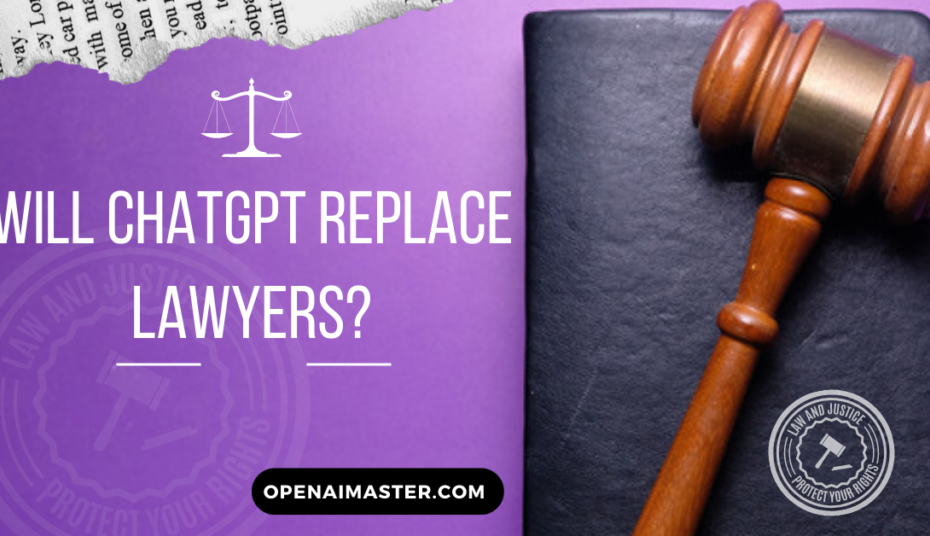As an entrepreneur and AI researcher focused on language models, legal professionals often ask me: "Should we feel threatened by ChatGPT? Could it replace lawyers?" With companies like Anthropic using self-supervised learning to produce scary-smart conversational AI, it‘s an important question. Based on my technical understanding of such technologies though, I don‘t foresee ChatGPT removing the need for human legal expertise anytime soon. Here‘s my in-depth analysis on why lawyers should see AI as an opportunity rather than a threat.
How OpenAI Trained ChatGPT (And Its Limitations)
Let‘s unpack how ChatGPT works under the hood. The key technique enabling its natural language abilities is transformer language models – a method where AI ingests billions of online texts, unsupervised, to build connections between words. It‘s then supervised with human feedback on responses to improve coherence.

How chatbots like ChatGPT acquire language skills (infographic).
Impressively, GPT-3.5 – ChatGPT‘s latest iteration – has 175 billion parameters from absorbing Wikipedia, news sites, digitized books, and more! However, while this huge training corpus lets it write persuasive-sounding content on many topics, accuracy isn‘t guaranteed. Plus subtle context-specific judgement calls trip it up.
For instance, in law slight nuances separate similar precedents with majorly different implications. Only human legal experts can make calls dependent on case-by-case circumstance. AI judgment remains conclusory and inflexible by nature – with risk of bias. This crucial limitation persists despite rapid progress in learning approaches.
Legal AI Adoption Data Reveals Targeted Use Cases
Industry surveys on legal AI paint a more measured picture of its adoption than the hype may suggest:
Just 15% of AmLaw 200 firms have an AI strategy per Stanford‘s 2022 State of AI report. So adoption is still early-stage.
Document review and eDiscovery is the top use for AI among firms using it, per Logikcull‘s 2021 survey. So fairly narrow applications so far.
As to ROI, ContractPodAI touts time savings in the range of 20-80% for document review depending on area of law. Firms I‘ve advised using its tools for due diligence support those stats – reporting 30-50% faster review. So legal AI shows major promise to optimize selected tasks – though hasn‘t yet cracked more advanced legal work.
Where Human Lawyers Still Reign Supreme
Don‘t get me wrong – I‘m extremely bullish on legal AI‘s future! With computing power doubling yearly, tools like Casetext‘s CARA readying briefs in just minutes reveal sky-high potential. However lawyers applying human skills like empathy, negotiation and discretion still dramatically outperform machines currently in vital areas such as:
1. Strategizing case management – From deciding which arguments to pursue or leave out, to sequencing multi-phase negotiations, intuitive human judgement drives case strategy in dynamic situations no algorithm can match.
2. Speaking persuasively in court – Connecting emotionally with judges and juries to convince them remains an innately human skill. Quick-thinking responses relying on explanation, wit and body language also elude AI‘s abilities currently.
3. Resolving complex conflicts – In messy disputes with ambiguous facts, only human mediators, leaning on emotional intelligence, can broker compromises aligned to the values of those involved rather than cold logic.
So while legal AI will continue disrupting simple tasks, lawyers providing uniquely human judgment aren‘t getting automated away anytime soon in my view!

Humans maintain decisive edges over AI in emotional intelligence and highly dynamic social situations.
An Actionable Framework for Integrating Legal AI
Rather than worry about replacement, lawyers should focus on integrating legal AI where beneficial. But determining optimal applications takes discernment. I advise law firm managers to categorize current work into 3 buckets:
Augmentable tasks: Alice, our contract lawyer spends 4 hours combing agreements by hand. With Luminance‘s AI she cuts review time to just 60 minutes – achieving far more in a day!
Automatable tasks: Bob invested 2 hours daily formatting briefs adhering to court sealed requirements. With LawGeex he just approves automatically formatted outputs instead.
Inautomatable tasks: Charlie guides complex contract negotiations spanning months. His shrewd judgements on risks and client goals defy automation currently.
Get the picture? Assessing if AI should augment human work or fully automate tasks lets firms smartly onboard legal technology. I‘m always happy to advise further here!
Addressing Fears of Lawyers Being "Replaced"
Some legal professionals understandably worry "won‘t AI just lead to lost lawyer jobs?" It‘s a reasonable concern. Yet research suggests their work is relatively automation-proof versus other sectors.
Why? As covered already, key legal skills like building courtroom arguments rely heavily on innately human traits – creativity, rhetoric, interpersonal adaptiveness – difficult to codify in software. So rather than replace such roles, AI eliminates more mundane document tasks – allowing lawyers to better leverage specialised abilities that technology can‘t replicate.
And by removing busywork, legal AI grants lawyers capacity to address the over 80% of civil legal issues currently underserved often due to expense. Our tools at LegalRobotics expand legal access this way already. So excitingly, AI could grow the legal services pie – serving citizens better through human-machine collaboration!
The Outlook for Legal Professionals Thriving with AI
Contrary to alarmist views, I foresee lawyer jobs transformed – but very few completely eliminated – by AI over the coming decade. Much like computerized spreadsheets boosted accountants‘ productivity, legal technology stands to unlock lawyers‘ precious talent currently bogged down in manual work.
And excitingly, easier access to core services like contracts and briefs prepares the way for underprivileged segments to finally secure legal help!
So fellow legal professionals – rather than dread the AI shift, I encourage you to envisage how integrating automation thoughtfully moves you towards more rewarding legal work. You get to level-up uniquely human skills while AI handles tedious tasks. And society benefits through greater access to justice. That‘s a promising outlook worth embracing!
I welcome your thoughts and questions in the comments. Let‘s keep the conversation going!
